The French government has blamed social media for the riots that have erupted in the country’s cities, saying platforms like Snapchat and Tik Tok have played a key role in spreading the violence.
However, some experts warn that these platforms cannot be held responsible for the outbreak of youth violence.
“Incendiary” images
Snapchat, Telegram and TikTok have indeed contributed to the proliferation of videos depicting mass participation of young people in protests over the death of 17-year-old Nael, who was shot dead by a police officer in Nader last week. But at the same time, images quickly circulated of a burning library in Marseille, a looted electronics store and an armored security vehicle operating on the streets of Nader.
Violent incidents that erupted on the night of June 29 in several French cities, three days after Nael’s death, have been widely documented and replayed on social media.
The first “bursts”
Like the day before, videos of fires and destruction flooded Twitter, Snapchat, TikTok and Telegram. So much so that on Friday, French President Emmanuel Macron urged major platforms to remove “the most sensitive content”. He asked them to work together to identify those “who are using these social media to call for riots or increase violence.”
The process for distributing videos is often the same. The vast majority of this comes from Snapchat, a platform that is very popular among young people: 81% of children aged 8-19 in France have an account (Audirep/e-Enfance, 2021). The app allows you to add comments or “tags” to videos or photos, such as the name of a city.
Young people posting photos use this tool to proudly showcase their origins: Grigny, La Grande Borne or Nanterre are all suburbs of Paris. It’s a way to frame your content, but also, of course, show your origins.
It might be an exaggeration to say that there is a rivalry in the way each group organizes its rebellion. However, “pride” that “their” city is involved in, for example, the recent riots, is expressed in different ways and is a common feature of the video posts.
From “regulation” to “prohibition”
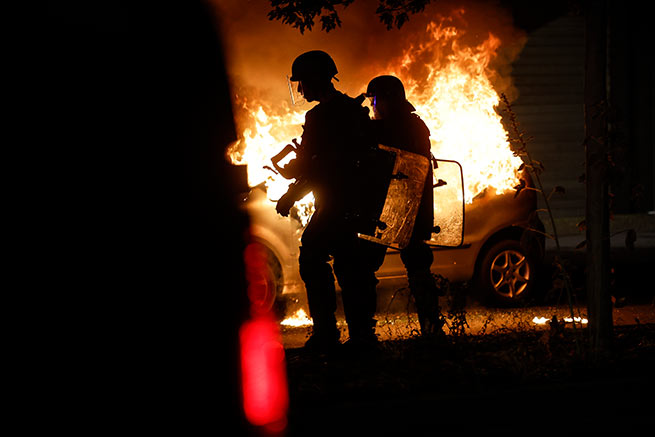
During a meeting on Tuesday with the mayors of dozens of districts hit by last week’s unrest, Macron spoke of the possibility of “regulating” and even “banning” social media in the most extreme cases. “We have to think about the use of these networks among the smallest, in families, in schools, about the bans that we have to take,” he said in his speech. “When a situation gets out of control for a while, we wonder if it should be regulated or blocked (…). It is important not to do this, guided by momentary necessity. I am glad that we did not have to do this”, – added the President of France.
“Block access to social networks? Like China, Iran, North Korea?” said right-wing MP Olivier Marlette. “Okay, Kim Jong-un,” his left-wing colleague Matold Panno commented sarcastically.
The French President reacted immediately, saying that he did not say “by no means what he thinks about the blocking of social networks in the sense of a general shutdown”, but that he meant the fact that he “may suspend work [сетей] temporarily and on a case-by-case basis.
Asked at a press conference after the relevant government meeting, government spokesman Olivier Veran said it would be a “suspension” of certain features such as geolocation. In his opinion, this function allows “young people to concentrate in a certain place, information that is often accompanied by ‘instructions’ on how to light a fire.” “They are invited to organize hatred in the public space,” he added.
What do social networks do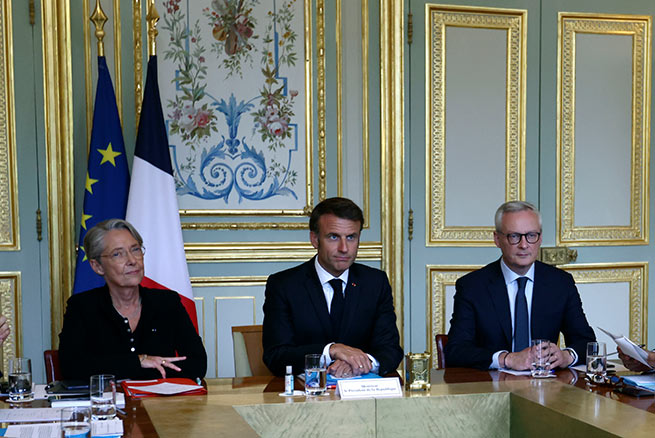
Social networks often identify and restrict access to people who call for violence, as this may be contrary to their policies. They also remove content hosted on their platforms to comply with the laws of each country, often following the advice of the respective government, even if it is conflicting. A recent example was Twitter’s decision last May to censor a post at the behest of the Turkish government just weeks before the country’s presidential election.
On its website, Snapchat says it’s working with law enforcement and government agencies to fulfill “reasonable requests” for information that could help with an investigation. The company receives many inquiries throughout the year. According to the latest transparency report for the second half of 2022, the US government received the most requests, followed by the UK, Canada and Germany.
Officials in France have filed 100 extraordinary requests for information about users and account identifiers, such as email address and phone number. The company said it provided “some data” in 54% of requests.
During the same period, TikTok’s transparency report showed that the company received far fewer inquiries – less than 20 – from the French government. It removed or restricted content or accounts associated with 86% of these requests.
The Fine Line – Political Protest or Violence
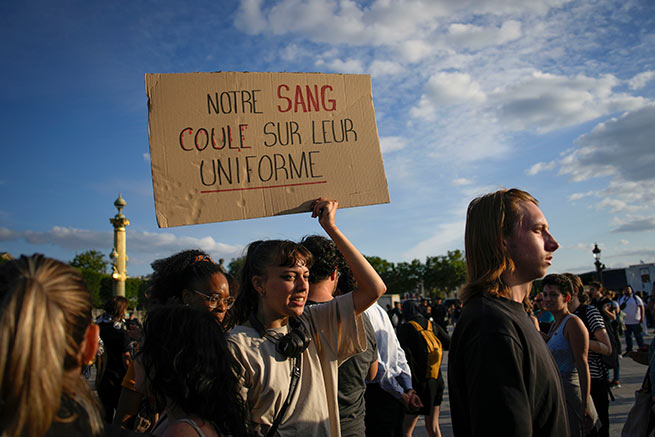
Hani Farid, a digital forensics expert at UC Berkeley who stepped down from TikTok’s “content board” in the US last January, said that if the government requires certain content to be taken down because it violates local laws, most platforms will comply. However, clarified that the ability to fulfill requests depends on the platform, as well as the scope and justification of the request. If the government “demands the widespread removal of tens of thousands of pieces of content, then there may be more resistance,” Farid said.
Emma Lanshaw, director of the Freedom of Expression Project at the Center for Democracy and Technology, said that while it is legal for online services to remove content that incites violence, they should be careful, especially with requests that can be broad or too general. During a heated political debate and ferment, Lanshaw noted that users may use very strong language or “violent innuendo” without the intention of inciting or actually committing violent acts.
“Young people in France are currently protesting against state violence, which is the most important aspect of their political activity,” says Lanshaw.
“The way social media companies are reacting right now really affects people’s ability to find their political voice. It’s an incredibly thin line that we have to walk.”
PS I wonder why the list of “hostile social networks” does not include Meta products: Facebook, Instagram, WhatsApp, which, unlike the above Snapchat, Telegram and TikTok, are used by 100% of young people? Is it only a matter of censorship? Or maybe we are talking about the fact that these platforms are not controlled by the US authorities?
Sources: Reuters, lemonde.fr, france24.com, euronews, elpais.com.
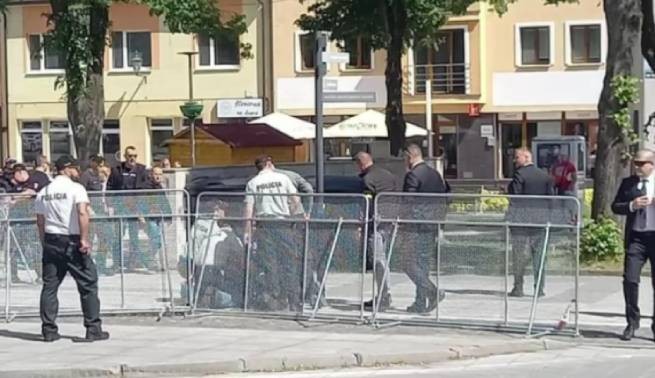
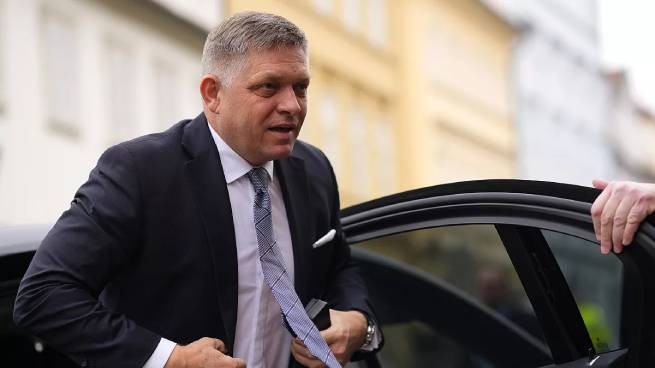


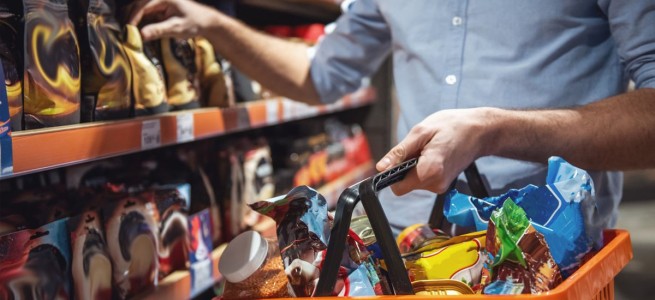
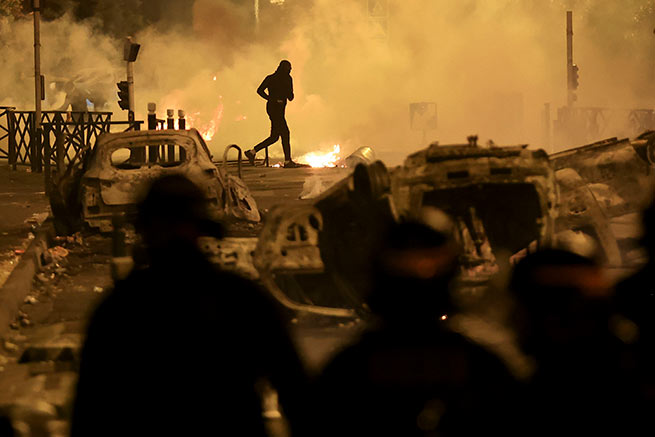

More Stories
Timothy Snyder: "We should think that Russia cannot lose, but…"
Disappointing forecast for the war in Europe
Conflict Intelligence Team: a house in Belgorod was probably destroyed by Russian ammunition